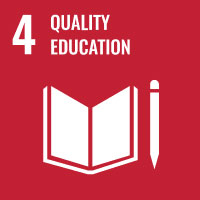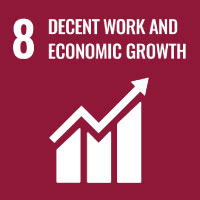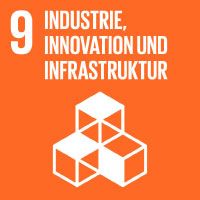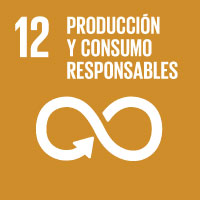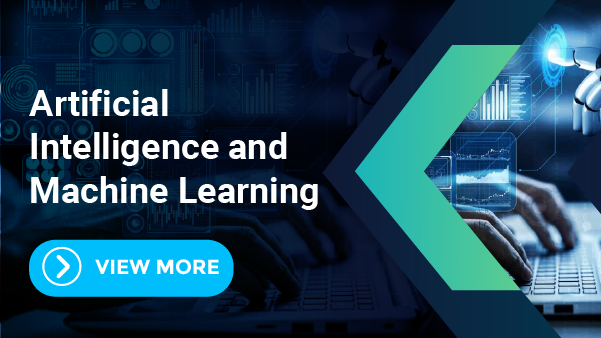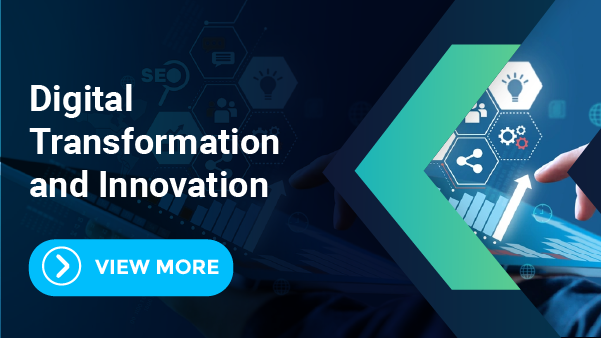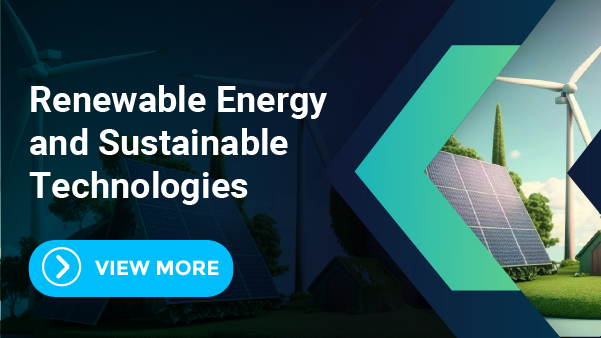Robotics and Automation
Session Overview
Prepare yourselves for the upcoming 3rd International Conference on Exploring Colossal Technological Advances of the 21st Century in Social Science, Education, Engineering, and Technology (ICECTASET-2024). Our mission is to create a platform where research luminaries from across the globe unite to showcase their latest findings and advancements in their respective domains. This extraordinary opportunity serves as a catalyst for professional growth, enabling researchers to make meaningful contributions to their fields and advance their careers to new heights besides contributing to the betterment of humanity! Embark with us on an unprecedented voyage of research innovation, collaboration, and enlightenment as we endeavour to sculpt the future and redefine scholarly accomplishments.
(ICECTASET-2024) invites submissions of full papers and abstracts on the following (but not limited to) sessions
Robotics and Automation is
contribution
to
The
Sustainable
Development Goals:
Goal 4: Quality Education:
Goal 8: Decent Work and Economic Growth:
Goal 9: Industry, Innovation, and Infrastructure
Goal 12: Responsible Consumption and Production
Who Can Join
Tracks
Topics of Interest for Submission include, but are not limited to:
1 Robotic process automation and industrial automation
2 Autonomous systems and robotics in healthcare and manufacturing
3 Human-robot interaction and social robotics
4 Robotics ethics and policy considerations
Organizing Commitee Member
Conference Co Chair

Prof. Hadiyanto, Ph.D
Universitas Jambi
Jambi, Indonesia
Conference Chair
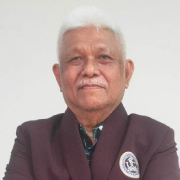
Dr. Ir. Bambang Sugiyono Agus Purwono, MSc
University of Ciputra
Surabaya, Indonesia
Conference Organizing Secretary

Dr.Erisa Kurniati
Universitas Batanghari
Jambi, Indonesia
Robotics and Automation
- Resource Efficiency and Waste Reduction: Smart Manufacturing Processes The session intends to discuss how robotics and automation optimise manufacturing processes by reducing resource consumption, minimising waste generation, and enhancing overall efficiency. Automated systems can streamline production, leading to fewer raw material inputs, reduced energy consumption, and lower greenhouse gas emissions.
- Environmental Monitoring and Conservation: Robotic Systems for Environmental Surveillance The session will explore further how robotics technologies help in real-time monitoring of environmental parameters, such as air and water quality, biodiversity, and habitat health. Robotic devices equipped with sensors and cameras can collect data in remote or hazardous environments, providing valuable insights for conservation efforts and ecosystem management.
- Renewable Energy Infrastructure: Robotic Maintenance in the Energy Sector Also, the session will look into the role of robotics and automation in maintaining and optimising renewable energy infrastructure, such as solar panels, wind turbines, and hydroelectric facilities. Automated maintenance systems can detect and repair faults more efficiently, ensuring the reliability and longevity of renewable energy systems while reducing downtime and operational costs.
- Sustainable Agriculture and Food Production: Precision Farming and Agricultural Robotics The session would research further on how robotics and automation technologies support sustainable agricultural practices, such as precision farming and robotic harvesting. Automated systems can enhance crop management, optimize resource use, and minimise environmental impact, leading to higher yields, improved food security, and reduced reliance on chemical inputs.
Scope & Benefits of Attending ICECTASET-2024 conference
Discover the transformative potential of ICECTASET-2024 with a focus on sustainable innovation and technology-driven solutions to address pressing environmental challenges. Learn,
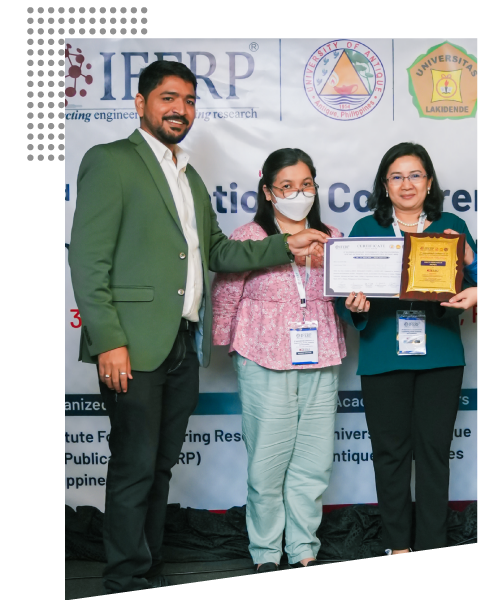
Benefits of Attending ICECTASET 2024
- Resource Efficiency and Infrastructure Resilience: Learn about strategies to optimise resource use and enhance the resilience of critical infrastructure.
- Sustainable Energy and Environmental Conservation: Dive into discussions on renewable energy sources, biodiversity preservation, and effective environmental conservation practices.
- Innovation for Sustainable Development: Engage in sessions promoting innovation, environmental awareness, and the adoption of eco-friendly practices.
- Responsible Business Practices: Gain insights into fostering sustainability through ethical financial strategies, transparent corporate operations, and responsible business practices.
- Inclusive Decision-Making for Sustainability: Understand the role of human behaviour, societal values, and cultural perspectives in driving inclusive decision-making processes for sustainable development.
Author Guidelines
Guidelines for Abstract Submission:
- Language: Abstracts must be written in English.
- Length: Limited to one paragraph with 200-250 words.
- Format: Submit in MS Word (.doc or .docx) document format.
- Content: Abstracts should provide an informative summary of the original work. Include a brief biography with your abstract, following the example provided in the template.
- Formatting: Center-align the Title, Author's Names, and Affiliations. Underline the presenting author's name.
- Submission: Please submit your abstract through the designated submission portal.
- Acknowledgment: Upon abstract submission, you will receive an acknowledgment email within three working days.
Evaluation Process
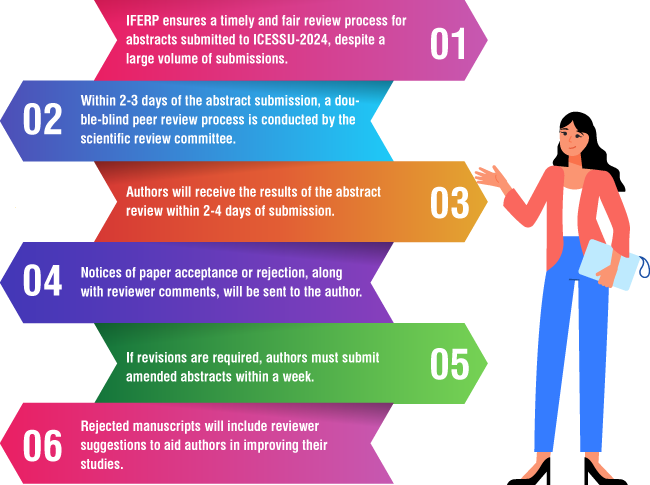
Guidelines for Full Paper Submission
If your abstract has been accepted and the registration fee for ICECTASET-2024 has been paid, you are invited to submit the full paper. Please adhere to the following guidelines for the submission:

- Total number of pages: 6-8 in double-column format
- Language: English (checked for grammar and language errors)
- Tables, figures, and images should be properly named and of high quality.
- Keywords should be written in lowercase letters (except for names/scientific names) and separated by commas.
- Affiliation names, including the country, must be provided.
- Each paper should be structured into the following sections:
- Background, Motivation, and Objective
- Statement of Contribution/Methods
- Results, Discussions, and Conclusions
Once your full paper is prepared according to the above instructions, please proceed to submit it through the provided link. Submit your Full paper Here.

